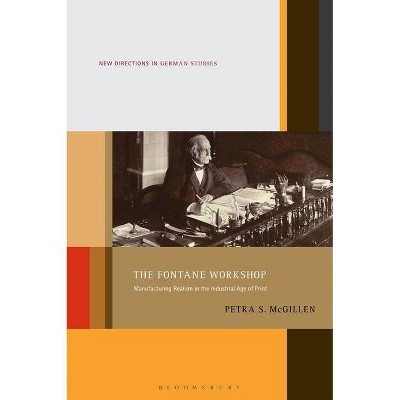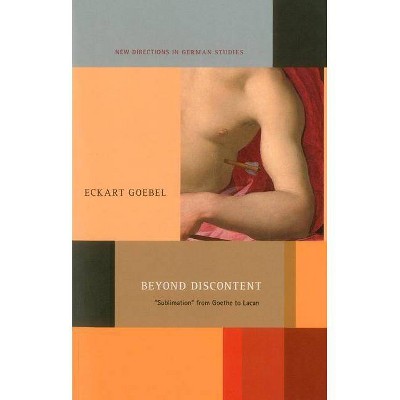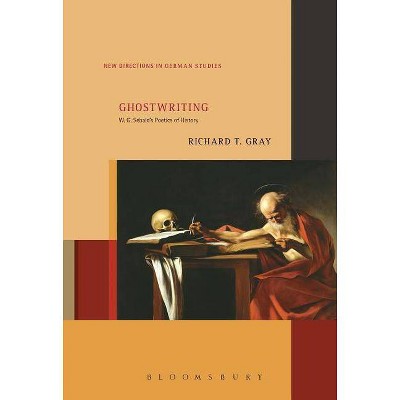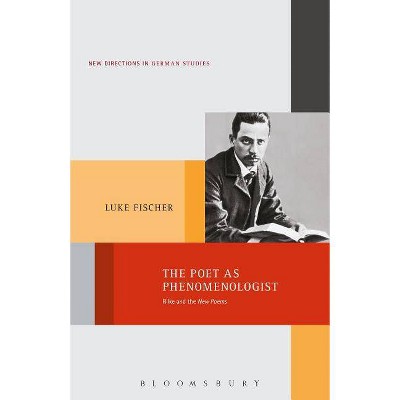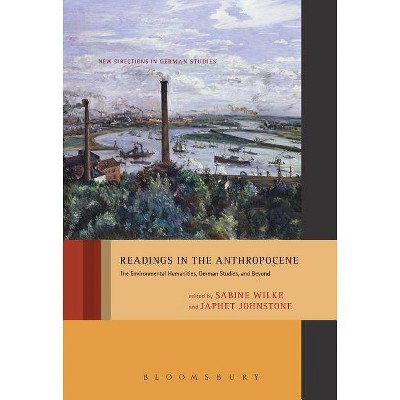Theodor Fontane - (New Directions in German Studies) by Brian Tucker (Hardcover)

Similar Products
Products of same category from the store
AllProduct info
<p/><br></br><p><b> Book Synopsis </b></p></br></br>What happens when fashionable forms of unserious speech prove to be contagious, when they adulterate and weaken communicative spheres that rely on honesty, trust, and sincerity? Demonstrating how the tension between irony and avowal constitutes a central conflict in Fontane's works, this book argues that his best-known society novels play out a struggle between the incompatible demands of these two modes of speaking. Read in this light, the novels identify an irreconcilable discrepancy between word and deed as both the root of emotional discord and the proximate cause of historical and political upheaval.<br/> <br/> Given the alarm since 2016 over unreliability, falsehood, and indifference to truth, it is now easier to perceive in Fontane's novels a profound concern about language that is not sincere and not meant to be taken literally. For Fontane, irony exemplifies a discrepancy between language and meaning, a loosening of the ethical bond between words and the things to which they refer. His novels investigate the extent to which human relationships can continue to function in the face of pervasive irony and the erosion of language's credibility. Although Fontane is widely regarded as an ironic writer, Tucker's analyses reveal a critical distance between his works and the prospect of irony as a dominant idiom.<br/><br/>Revisiting Fontane's novels in a post-truth age brings the conflict between irony and avowal into sharper relief and makes legible the stakes and contours of our own post-truth condition.<p/><br></br><p><b> Review Quotes </b></p></br></br><br>An original and invigorating approach to the social novels of Theodor Fontane, this sensitive study examines how Fontane's use of language traverses the gradations between avowal and irony. Tucker reveals that this 19th-century German novelist was a sharp observer and critic of the 'Berlin idiom' and its historical consequences. He demonstrates that, in the end and despite all his ironic play with language, Fontane seeks accuracy and reliability in human conversation, a 'tighter . . . connection between words and things.' Tucker's insightful parsing of Fontane's brilliant engagement with language inspires us to read these novels anew amid the delusions and confusions of our own 'post-truth' moment.<br/>Lynne Tatlock, Hortense and Tobias Lewin Distinguished Professor in the Humanities and Director of Comparative Literature, Washington University in St. Louis, USA<br><br>In this important study, Brian Tucker examines the tension between serious and ironic language in Theodor Fontane's work. By showing how Foucault's concept of avowal can serve as an antidote to corrosive irony, Tucker demonstrates the ways in which Fontane's fiction exposes the corruption of language in his contemporary Prussian society. Tucker develops his argument through lucid readings of Fontane's major novels, challenging along the way the common assumption that linguistic decadence is the inevitable byproduct of historical change. The book makes a major contribution to Fontane scholarship and shows why Fontane's writings continue to resonate deeply today.<br/>Todd Kontje, Distinguished Professor and Professor of German and Comparative Literature, University of California at San Diego, USA<br><p/><br></br><p><b> About the Author </b></p></br></br><b>Brian Tucker </b>is Professor of German and Chair of Humanities and Fine Arts at Wabash College. His research interests include the literature and intellectual history of the long nineteenth century, topics that he pursues in his first book, <i>Reading Riddles: Rhetorics of Obscurity from Romanticism to Freud</i>, and in the co-edited volume <i>Fontane in the Twenty-First Century</i>.
Price History
Price Archive shows prices from various stores, lets you see history and find the cheapest. There is no actual sale on the website. For all support, inquiry and suggestion messages communication@pricearchive.us
